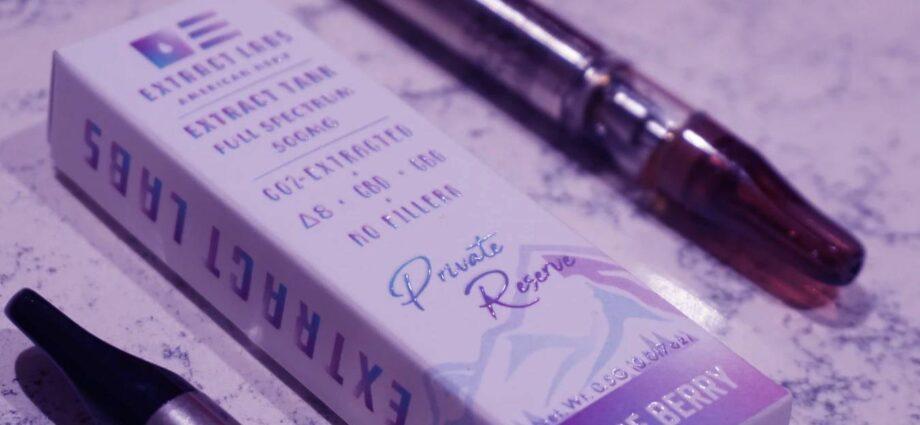CBD products are gaining more popularity with each passing day, and there are always some innovations that threaten to disturb the market and take CBD off the throne. One of those innovations is the delta-8 flower.
D-8 THC has also been growing in popularity as the most promising alternative to D-9 THC. Some experts consider D-8 to be among the most common active compounds in cannabis. While there are some relations between D-8 and D-9, D-8 is related to neuroprotective, pain-relieving, appetite-stimulating, anti-anxiety, and anti-nausea properties.
That’s why some consumers consider D-8 to be the gentler, more therapeutic version of D-9. D-8 possesses some potential benefits, including help with sleeplessness, nausea, and pain. Let’s see some of the facts you should know about delta 8 THC.
Delta-8 THC Is a Cannabinoid
D-8 THC is a cannabinoid, just like CBD, CBC, CBN, and CBG. And just like D-9, D-8 also can fire up CB1 and CB2 receptors in the human endocannabinoid system. That’s why D-8 provides almost similar effects to its well-known psychoactive counterpart, D-9.
The main difference between the two cannabinoids is in their chemical structure, and even though D-8 can be found naturally in small amounts, it can be produced by converting D-9 and CBD by altering the PH of the environment, solvents, or heat.
Delta-8 THC Is Legal
D-8 is legal in every state besides Utah, Rhode Island, Montana, Mississippi, Iowa, Idaho, Delaware, Colorado, Arkansas, Arizona, and Alaska. However, the legality of D-8 depends on the way it’s sourced.
While D-9 remains illegal in many states, D-8 is considered illegal if it is chemically converted from D-9 to D-8. It is only legal if it’s chemically converted from CBD from the hemp plant. The 2018 Farm Bill made hemp legal due to having a low concentration of D-9. Since D-8 is an isomer of CBD and a derivative of hemp-extract CBD, it is considered legal if it contains less than 0.3% of D-9 THC.
Delta-8 THC Is Psychoactive
Just like D-9, D-8 is psychoactive and, therefore, intoxicating. In other words, it will get you high and may cause dizziness and drowsiness. It’s also important to mention that the effects of D-8 differ from those of D-9. While many users describe D-8 as semi-sedative, D-8 doesn’t provide that much mental stimulation and mind-altering properties as D-9.
Delta-8 THC can provide potential health and therapeutic benefits that can help with providing relief from anxiety, stress, depression, and paranoia. According to many consumers, D-8 isn’t associated with dizziness, anxiety, or paranoia that often comes with the consumption of D-9.
D-8 has a lower psychotropic potency due to different molecular structure that causes it to bind differently to CB1 receptors, which are in charge of regulating most of the psychotropic and mind-altering effects of D-9 THC.
Delta-8 THC Isn’t a Flower
While both D-9 and CBD produce flowers that you can smoke, D-8 doesn’t. It is an extract from hemp, and it can’t produce a flower on its own as D-9 and CBD can. It has to be extracted from the hemp plant. However, CBD brands have been working on a solution to provide marijuana users with D-8 flowers by changing the chemical structure of CBD and D-9.
CBD flowers are industrial hemp flowers that produce low amounts of THC and high amounts of CBD. On the other hand, cannabis produces insufficient quantities of CBD and high amounts of THC. Therefore, if one wants to get D-8, it has to be extracted and processed in the lab to deliver the result, bringing the best from both worlds without any side effects associated with D-9.
There Are Different Strains of Delta-8 THC
Just like cannabis, D-8 also has different strains: Hybrid, Sativa, and Indica. Each strain is different, promoting other effects and properties. For example, Indica is usually associated with relaxation, while Sativa promotes energy and wakefulness.
Sativa products are usually rich in terpenes that can enhance the experience. The Hybrid is the result of mixing Sativa and Indica, where one strain can be more dominant than the other, depending on the user’s preference.
Delta-8 THC Uses Terpenes
Many marijuana and cannabis users are aware of cannabinoids, but only a few know about the terpenes. Terpenes are aromatic compounds found in hemp and many other plants. They are rich in aromatic oils and cause your CBD and THC flowers to taste differently with different flavors and scents.
Some terpene-rich strains have the taste and smell of citrus and orange, while others are more piney and earthy. Some of the most common hemp terpenes are Trans-Nerolidol, Alpha-Bisabolol, Eucalyptol, Caryophyllene, Linalool, Limonene, and Myrcene.
Conclusion
D-8 is the next best thing, right next to CBD. It still isn’t considered marijuana because it comes from hemp, and while it will get you high, the experience isn’t as intense as with D-9. There is still a long way to go when it comes to what we know about D-8, but we can safely say that it has a bright future. If you’re looking for a great alternative to D-9, D-8 is the answer.
